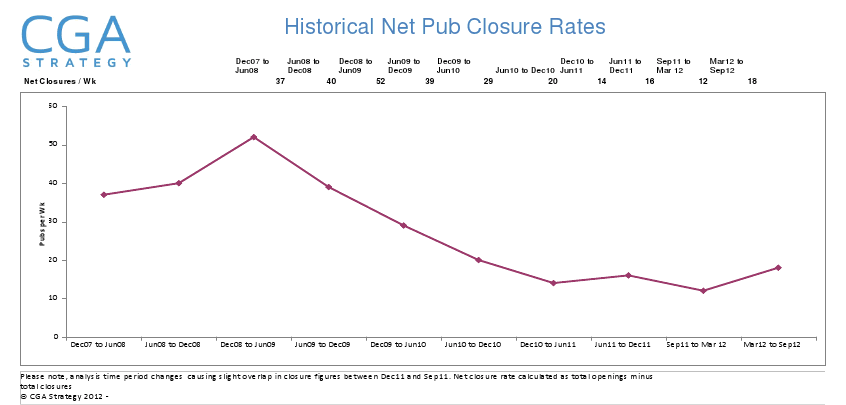Are pubs faring well, or are they bidding farewell?
"Eighteen pubs are closing in Britain every week as the rising cost of beer drives landlords out of business, the Campaign for Real Ale (CAMRA) has warned."
The Daily Telegraph, 1 November, 2012
Discrepant reports and data on the number of pubs, and the price of beer often make it very difficult to assess whether watering holes across the country are fairing well, or saying farewell.
Full Fact is no stranger to these reports either, and we've found some previous estimates reported by the press depend very much on what you define as a 'pub'.
Join 72,953 people who trust us to check the facts
Sign up to get weekly updates on politics, immigration, health and more.
Subscribe to weekly email newsletters from Full Fact for updates on politics, immigration, health and more. Our fact checks are free to read but not to produce, so you will also get occasional emails about fundraising and other ways you can help. You can unsubscribe at any time. For more information about how we use your data see our Privacy Policy.
Yesterday figures supposedly revealed 18 pubs are closing every week in Britain.
CAMRA - the source of the figures - attributes this to the 'beer duty escalator' introduced in November 2008, which increases beer costs by 2% above inflation every year. As a result, the price of a pint has increased by 7% in the past year - according to CAMRA - "from £2.57 in 2007 to £3.09 today," while a pint of real ale has risen from £2.34 to £2.91.
So what do the latest set of figures mean?
CAMRA says that 5,800 pubs have closed since the duty escalator was introduced in 2008.
But out of how many pubs? Though the British Beer and Pub Association (BBPA) report just under 50,000 as the total number of pubs in Britain, the CGA told us that 57,678 pubs remain open in Britain.
Both numbers were sound, but, as the BBPA explained to us, they only count pubs on the basis of whether they pay business rates. That is how they assess whether the registered joints are actively trading, and so they are able to filter out 'dormant' pubs.
Having considered these caveats, are CAMRA right to attribute the closures to the rise in beer duty? They say there have been 450 pub closures across the UK since March, or 18 closures a week, a considerable increase since last year when it was recorded that 12 pubs were closing each per week (for the period September 2011 — March 2012).
As an aftermath of the tax being introduced, the closure rate was reportedly 52 per week in the first six months of 2009. That period of time would coincide with the peak of the financial crisis, so it is unusual that neither CAMRA nor the BBPA would factor in the crisis as one of the potential causes for the the high rate of pub closures.
Moreover, if we look at the bigger picture, pub closures have broadly decreased since the beer duty was first introduced four years ago (some of this could be due to fewer pubs around, but the change in rate is still noticeable).
This last point is illustrated in the graph below, sent to us by the market research firm CGA, who has carried out research both on behalf on CAMRA and the BBPA. The CGA don't have data on pub closures prior to the introduction of the beer tax:

Finally, if we look at the historical data, it is evident that pub numbers have been declining steadily since 1980, 28 years before the beer tax was introduced.

In other words, the jury is still out over whether there is solid evidence that the beer duty has impacted pub closure rates.
---
Flickr image courtesy of Joe Dunckley.